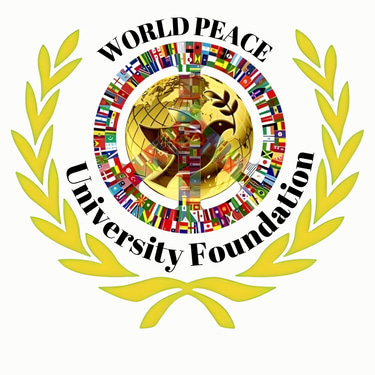The United Nations: Promoting Human Rights and Dignity Worldwide
4/23/20243 min read


The United Nations and Human Rights
The United Nations (UN) is an international organization founded in 1945 with the goal of promoting peace, cooperation, and human rights around the world. One of the key aspects of the UN's work is its commitment to protecting and promoting human rights and dignity. Throughout its history, the UN has played a crucial role in advancing human rights and addressing humanitarian issues on a global scale.
Universal Declaration of Human Rights
At the heart of the UN's efforts to promote human rights is the Universal Declaration of Human Rights (UDHR). Adopted by the UN General Assembly in 1948, the UDHR is a landmark document that sets out the fundamental rights and freedoms to which all individuals are entitled, regardless of their race, religion, nationality, or any other status.
The UDHR includes a wide range of rights, including civil and political rights, such as the right to life, liberty, and security of person, the right to a fair trial, and the right to freedom of thought, conscience, and religion. It also includes economic, social, and cultural rights, such as the right to education, the right to work, and the right to an adequate standard of living.
Promoting Human Rights through Treaties and Conventions
In addition to the UDHR, the UN has developed a comprehensive framework of international treaties and conventions to protect and promote human rights. These include the International Covenant on Civil and Political Rights (ICCPR), the International Covenant on Economic, Social, and Cultural Rights (ICESCR), and the Convention on the Rights of the Child (CRC), among others.
These treaties and conventions provide a legal framework for states to respect, protect, and fulfill the rights outlined in the UDHR. They also establish mechanisms for monitoring and reporting on the implementation of these rights, and provide avenues for individuals and groups to seek redress for human rights violations.
Humanitarian Assistance and Peacekeeping
In addition to its work on human rights, the UN is also actively involved in providing humanitarian assistance and peacekeeping operations in conflict-affected regions. The UN's humanitarian efforts aim to alleviate suffering, protect vulnerable populations, and ensure access to essential services, such as food, water, healthcare, and shelter.
Through its various agencies, such as the United Nations High Commissioner for Refugees (UNHCR) and the World Food Programme (WFP), the UN plays a vital role in responding to humanitarian crises, including natural disasters, conflicts, and refugee situations. These agencies work on the ground to provide emergency relief, support sustainable development, and promote human dignity.
Furthermore, the UN deploys peacekeeping missions to areas affected by armed conflicts to help maintain peace and security. These missions often involve military, police, and civilian personnel who work to protect civilians, facilitate political processes, and support the restoration of the rule of law.
Addressing Human Rights Challenges
While the UN's efforts in promoting human rights and dignity are commendable, there are numerous challenges that need to be addressed. One of the main challenges is the lack of universal adherence to human rights standards. Despite the existence of international treaties and conventions, human rights violations continue to occur in many parts of the world.
Additionally, the UN faces challenges in ensuring accountability for human rights abuses and violations. In some cases, powerful states or non-state actors may act with impunity, making it difficult to hold them accountable for their actions. The UN continues to work towards strengthening mechanisms for accountability and justice, including through the International Criminal Court (ICC).
Conclusion
The United Nations plays a crucial role in promoting human rights and dignity worldwide. Through its commitment to the Universal Declaration of Human Rights and the development of international treaties and conventions, the UN provides a framework for protecting and promoting human rights. Its humanitarian efforts and peacekeeping operations further demonstrate its dedication to alleviating suffering and maintaining peace and security. While challenges remain, the UN continues to work towards a world where human rights are respected and upheld for all.
Connect
Email : info@wpufoundation.org
Follow
Stay Connected with Us
+1 (564)243 9111
World Peace University Foundation is 501(c)(3) nonprofit organization EIN - 99-1863511, All donation is tax dedcutable as federal govt rule. ©2024 WPU-F. All rights reserved.
Address
424 W. Bakerview Road, Ste 105-2056
Bellingham, WA 98226 United States
